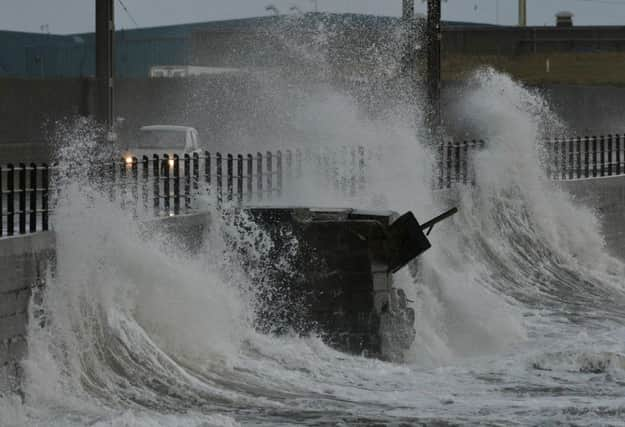Scotland’s weather: Storm Clodagh to hit the west


Gusts of up to 70mph are expected around exposed coastal areas in the west, with winds in inland areas reaching between 50-60 mph, particularly in northern England, but Ireland will bear the brunt of the storm’s impact.
The Met Office has issued weather warnings for this evening, covering the whole of England and Wales, though some parts of eastern Scotland and Orkney and Shetland will escape the worst of the weather.
Advertisement
Hide AdAdvertisement
Hide AdWintry showers are also expected over much of Scotland, with snow falling throughout the morning and leaving dustings of up to 15cm (6in) on higher ground, and a possibility that snow could fall on the hills in northern England.
Local authorities across the UK have cancelled their switch-on celebrations - including Irvine in North Ayrshire, which was expecting an appearance from The Only Way Is Essex Star James Lock - as the country faces snow on higher ground.
Bognor Regis and Portsmouth and other parts of Ayrshire have also suspended their festive plans in light of the bad weather.
Heavy rain was also expected in the morning and early afternoon, particularly in north east England, and while rainfall is not expected to be more than 25mm (1in), already-high river levels mean the rain could lead to some localised flooding.
The Environment Agency has issued a number of flood warnings for much of England and Wales, particularly the north west and south west.
A spokesman for the Met Office said: “Although rainfall accumulations are not expected to be particularly large, rivers remain high from previous rainfall and are expected to respond, leading to the risk of flooding.”
He added: “The strongest winds are expected to reach Northern Ireland around dawn on Sunday, and most areas by the end of the morning, before gradually subsiding from the west during the afternoon and evening.